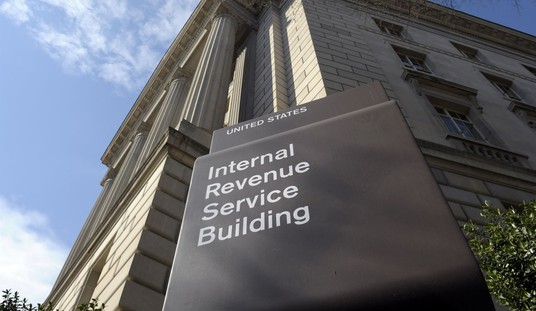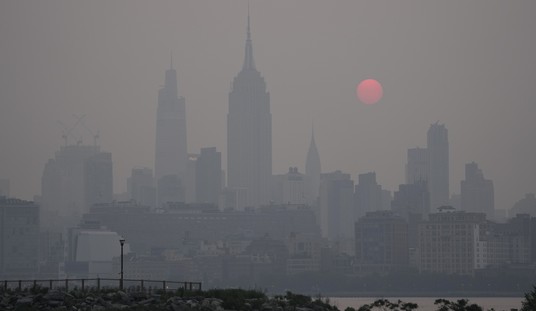Don’t panic. The United States is trying to initiate a seismic shift in trade and economic policy, and the markets don’t usually like new things, especially regarding tariffs. President Donald Trump is trying to protect American workers and the middle class after a 60-year plot to rob them of their wealth, thanks to bad trade deals and unfettered free trade that’s obliterated American manufacturing. Millions of jobs were shipped overseas, and a deluge of illegal immigration pillaged the ones that remained.
It's a litmus test regarding who gets what, why Trump won, why his base is loyal, and why this attempt will happen, and everyone best accept it.
Batya Ungar-Sargon is a lefty Trump supporter, who is aghast that the political elites and the global powers that be are trying to short the American economy over Trump’s pitch to protect working-class Americans. It’s a self-induced sell-off. A market reset would always happen since spending levels under brain-dead Joe Biden would not be sustained. The elites exploited American workers, and now Trump is trying to shift the dynamic. Trump won’t back down—this is now a signal and noise dynamic, and we’ll see who can remain firm and stick to the mission and who will chicken out.
She spoke with independent reporter Michael Shellenberger for over an hour about the Trump tariff policy, where she said that Liberation Day should kill the oldest anti-Trump narrative in the book, which is that the president is only for the wealthy. Again, it goes back to how the elites and the wealthy have a general hatred toward working people (via Public):
“Liberation Day should go down in history as the day that finally put to bed the myth that Donald Trump only cares about the rich,” she said in a new podcast with me today. “It's the exact opposite. He is waging class warfare on Wall Street for the sake of the American working class. And to punish him, Wall Street is literally just shorting him. They're shorting his agenda. They are betting against America, they are betting against the president because they cannot stand the idea that there is a person with power in America was not on his knees in front of Wall Street asking them, ‘And what would you like next?’ the way both parties have been doing for 60 years.”
The media has been even worse. “Our economic policy for the last 60 years was put in place by people who are too lazy to get out from behind their laptops,” she said. “They imagine that nobody would want to work in a factory because they would rather die than work in a factory. They would rather die than watch their own children work in a factor or clean their own toilets. So they imagine that no one would want to do these things. And so they shipped manufacturing overseas and imported a slave caste.”
Over half of Americans have money in the stock market, and so we shouldn’t discount the pain many people are feeling right now or the possibility that Trump’s tariffs could backfire, cause a recession, and lower living standards.
But, as Treasury Secretary Scott Bessent has noted, “The top 10% of Americans own 88% of the stock market. The next 40% owns 12% of the stock market. The bottom 50% has debt. They have credit card bills. They rent their homes. They have auto loans. And we've got to give them some relief.”
The problem isn’t just the inequality. It’s the lack of solidarity. The wealthiest Americans don’t seem to care about the poorest.
“Last year,” noted Bessent, “the summer of 2024, Americans took more European vacations than they had in history. [And] Summer of 2024, more Americans were using food banks than ever in history.”
Creating more purchasing power for the poorest Americans would be good for growth, not bad, argue tariff supporters, including Bessent, Oren Cass, and Ungar-Sargon.
“The top 10% now control over 60% of our GDP. They are not the ideal consumer for the central components of the American dream: housing, healthcare, education, and retirement. They are the only consumers who can afford those things. So the price for those items is tagged to their incomes.”
Bessent says something similar. “I don't think the bottom 50% of Americans are losers, I think the system hasn't worked for them. I think that they are winners. It's just a bad system. So we are going to fix the system. They want good jobs. They want their kids to do better than they do. They want to own a home. They want to pay down their debt. This isn't hard. We can do this in the next four years.”
And bringing a significant amount of manufacturing back to the United States is a national security imperative recognized by Republicans and Democrats.
Recommended
Onward. And the markets will reset, folks.
BREAKING: Japan’s stock market surges over +6% at the open. pic.twitter.com/V51UsoBsfV
— The Kobeissi Letter (@KobeissiLetter) April 8, 2025
























Join the conversation as a VIP Member